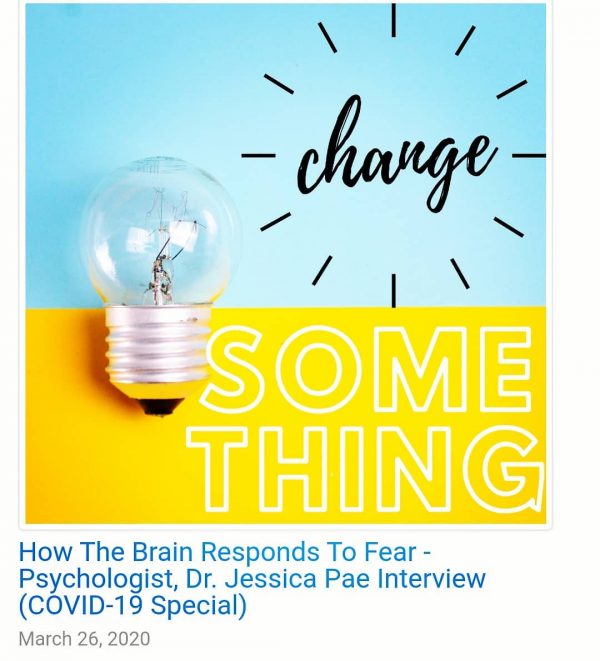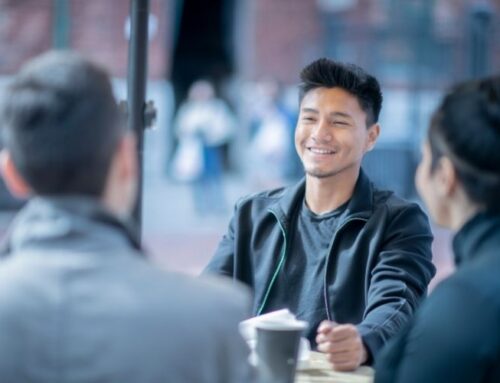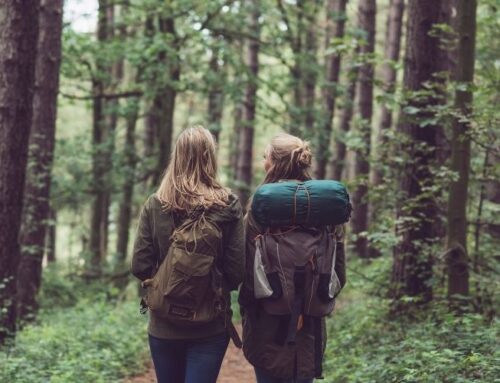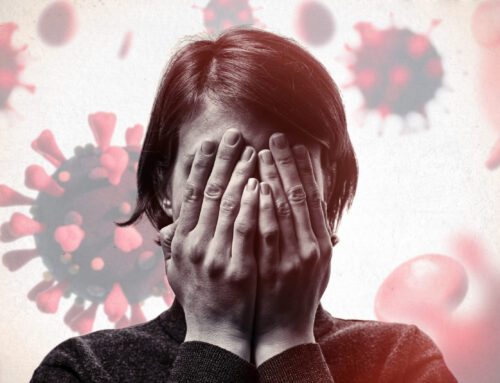Recently, Dr. Jessica Pae, PsyD was featured on the Change Something podcast. Dr. Pae spoke specifically to the ways our brains respond to fear, especially during the global pandemic caused by Coronavirus aka COVID-19. Dr. Pae explains how our response to fear is not only primarily a helpful response, but also how counseling can help us to balance the fear and anxiety we once needed to survive with the world we live in today.
If you would like to schedule an appointment with Dr. Jessica Pae or any of our counselors, please contact us using this link or call our front desk at (720) 489-8555.
To listen to the podcast, click here. Below is the transcript of Dr. Pae’s appearance, taken from the Change Something website.
Intro Script: Welcome to the Change Something podcast transcript for the deaf, hard or hearing, and those who simply prefer written word. In this podcast, we recognize that we all have 168 hours in one week. How will you leverage it? How will you use it not only for your own health, but for the good of your city?
On this podcast, we will speak with psychologists, chiropractors, teachers, truckers, first responders, writers, and all sorts of professionals, every month, for 15 minutes or less to provide tools and techniques to not only better your life but to help you participate in the flourishing of your city.
My name is John Jou and I am glad you are joining us…
[Start interview]
J (Host): Today, in the midst of the Coronavirus, I have a special guest with me. Her name is Jessica Pae and she works at Grace Counseling in Littleton, Colorado as a licensed psychologist. And as we all know, anxiety often comes from a lack of clarity. But, before we dive into how fear affects our brains, can you share with us your typical day to day as a clinician? For someone who knows nothing about psychology and counseling, what do you do?
Dr. P: Um, sure. There is actually no typical day for me. Every day is a little bit different. I see about 8-10 clients a day. And they range from 2-99 years old.
J: wow.
Dr. P: I see individuals, families, and couples. Everybody and every day, and every hour is unique. It’s really an awesome opportunity as everyone is unique and has a different story. And therapy gives a safe space where people can be understood and work through their feelings and emotions.
J: One of the reasons and the vision behind this podcast, and why it started is to help people leverage their everyday jobs for the good of their cities. What is one practical tip you would provide to someone who is asking, “How do I find out what I am passionate about? How did you know that you were passionate about counseling and helping people through their stories?”
Dr. P: I have always loved stories and people. So counseling and psychology was a natural fit. And as I talked to more people and had different opportunities in undergrad and grad school to hone some of those personal gifts, it helped in figuring out what my passions were. So, my advice is to talk to people and get as much as experience as you can, and take an open stance so that you can learn.
J: I love that tip. I was reading something by James Emery White, talking about gen Z who is coming up behind us—a generation that has so much access to information but not a lot of avenues for wisdom. That is such a great tip you provide.
Dr. P: There is so much information, and there isn’t a lot of avenues for people to sort through or apply critical thinking. So talking to real humans is always helpful.
J: Well, yeah, I am glad that you say that as a clinical psychologist that talking to people is helpful. Haha.
So, I want to make a pivot in our show: The coronavirus has made fear a normal part of our lives. People are checking the news and social media constantly and excessively. Can you share with us how our brains and our bodies respond to fear and anxiety?
Dr. P: Sure. So fear and anxiety are all natural human experiences that we all have. Sometimes they get a bad reputation, and we label them as “bad” feelings, but feelings are not good or bad, they are neutral. So I like to talk to people about how our feelings are not good or bad, they just are. Fear and anxiety often tell us that something is not quite right, and they can protect us from danger. For example, if a bear is chasing us, we need a fear response so that we can run away, and not be eaten by the bear. If we stay, things can end very badly for us. So, we need fear and anxiety to survive. However, fear and anxiety can get the best of us, and cause a lot of problems. So, if we constantly feel like a bear is chasing us, it makes us tired and exhausted, which can affect our brain functioning. If we feel like we are constantly in danger, when we are actually safe, the fear can cause difficulty for us. So, fear reactions start in our brain in a part called the amygdala and spreads around our body, by triggering the flight or fight system. And it helps us make the best adjustments to fight or flight reaction. The problem is when we are safe and these sympathetic nervous systems are triggered, it can cause us to respond in ways that are not healthy.
J: I think it’s fascinating that fear is a neutral, and it’s not negative..did you say, feeling?
Dr. P: Yes. All feelings are neutral. Somehow, anger and fear and anxiety have gotten a bad reputation. The feelings in themselves are not bad, but it’s often the behaviors and the things that we choose that can be unhealthy or bad. The feelings themselves are not.
J: That’s such a helpful clarification. To think about them in columns of feelings and behavior. As you have met with different individuals, have you seen specific ways or triggers that are causing people to be anxious in light of COVID19?
Dr. P: Absolutely. A lot of people have too much exposure to media. And I would say the quantity is too much. They are constantly reading the news or watching the news, social media posts. And it’s increasing their anxiety in a way that can be dangerous. So I have been talking to people and monitoring their anxiety levels as they watch the news or watch the media. It’s helpful to be informed, but too much information can overwhelm us. Too much of the wrong information, that is not always based on facts…and there are so many people’s opinions out there, so we have to be wise about our media consumption.
J: So, what are practical tips and tools you would offer our listeners to: 1) not only be less anxious and fearful, but 2) how would you encourage our listeners to become messengers of calm for the good of our city? Because that’s really one of the reasons and visions behind this podcast. We want to be a good for our city, as causing panic, fear and multiplying fear is not good for anyone.
Dr. P: Sure, those are two huge questions. So let me break down the first question. I want to encourage people to breathe. I know that sounds super simple, but when we get stressed or anxious, and we start to breathe from our chest, and its super-fast, this causes us to feel more anxious. So practice deep breathing. So breathe from your stomach so that you can calm your body which can also help calm the mind.
J: I know that you just mentioned about breathing, and although it’s something we do every day, it’s not something we think about very often. Is there a specific resource we can put in the show notes? Some breathing techniques about being more intentional about our breathing?
Dr. P: You can Google search, deep breathing and fins some resources. I can walk you through some of the steps if that would be helpful. But there are also apps out there for your phone.
J: What are some of those apps?
Dr. P: Some apps include: Breathe2realx. Calm. Head space. They can be helpful to manage your anxiety, and it teaches you how to deep breathe. What you want to do is, take a deep breathe through your nose, and so it’s hitting your stomach, and breathe out of your mouth. It’s triggering your parasympathetic nervous system. I said earlier that when you are really anxious, the sympathetic nervous system get triggered, and it says, “Run, flee, get out of the way…” When you practice deep breathing, it triggers the parasympathetic nervous system which gives you a calming sensation in your body, which calms your brain as well. Because there is a deep mind connection.
J: That makes total sense. For those who have kids, nieces or nephews, how would you suggest talking to them about COVID19?
Dr. P: I believe in telling kids the truth in developmentally appropriate ways. Kids are really smart and intuitive and they are sensing all of the anxiety the adults around them are having. They are human and they probably know more than they are saying. And sometimes kids want to protect their parents, so having open dialogue about this is really helpful This is a really scary time, mostly, because of the unknown. So talking to your child and spending extra time and giving them opportunities to share about what they are thinking and feeling without any judgement is really helpful. And it’s helpful to validate their concerns and to validate their feelings. Sometimes parents want to fix their child’s feelings, but you can’t do that because there are so many unknowns. So, it’s really helpful to validate them and say, “This is really scary, but we will get through it.” It is really important to check in with their hearts and minds to see how they are doing.
J: Yeah, I think it’s helpful to remember that those feelings are neutral. So, not downplaying them if they are feeling them, but validating them. Of course, correcting behaviors that needs to be corrected but to not go after the fear itself. The second question was: how would you encourage our listeners to become messengers of calm for the good of our city?
Dr. P: So I know times are super scary, as many things are unknown. I think it’s helpful to remember all the positive things happening in the world. There are a lot of goodness happening in these scary times. A lot of people are building community, there are people stepping up, thinking about the common good, practicing kindness and generosity. There is more intentionality behind family time that can be very healing and restorative for our souls. There are a lot of good things happening. You know I recently read, “Viruses are contagious, but so is fear, panic and hysteria… but so is calm, love, enthusiasm, kindness and joy.” So we have a choice to join in the hysteria, or we have a choice to practice calmness, love and kindness. And I know that is really hard to do especially when things are scary, but we have a choice right now. So we have to choose very wisely.
J: love that. On my social media, I put up a question asking, “How can we share love and kindness in our city in creative ways?” One person mentioned the elderly who are at high risk. And they might be afraid to go shopping or pick up their prescription. So, we can serve them. Another mentioned international students, and how they had to leave early from their schools–so housing them or taking them to the airport was another idea. So, I hope we can do that together.
Thank you so much Dr. Jessica Pae for your time, and your commitment to your community in Colorado, and the mental health of your patients.
Dr. P: It’s such an honor to do what I am doing, so the privilege and honor is mine.
[end interview]
Outro: We all have a choice to make. Will you breathe and multiply calm? You absolutely can.
Will you be emphatic to people’s fears, as fears are not only neutral, but because felt fear does not have to be true to be real.
Who in your neighborhood needs to be seen, loved and served?
Let’s leverage our 168 hours a week and be the good. Let’s go change something.
To listen directly: Listen on Podbean, Apple Podcast, Google Play, or your favorite place to listen to podcasts.






